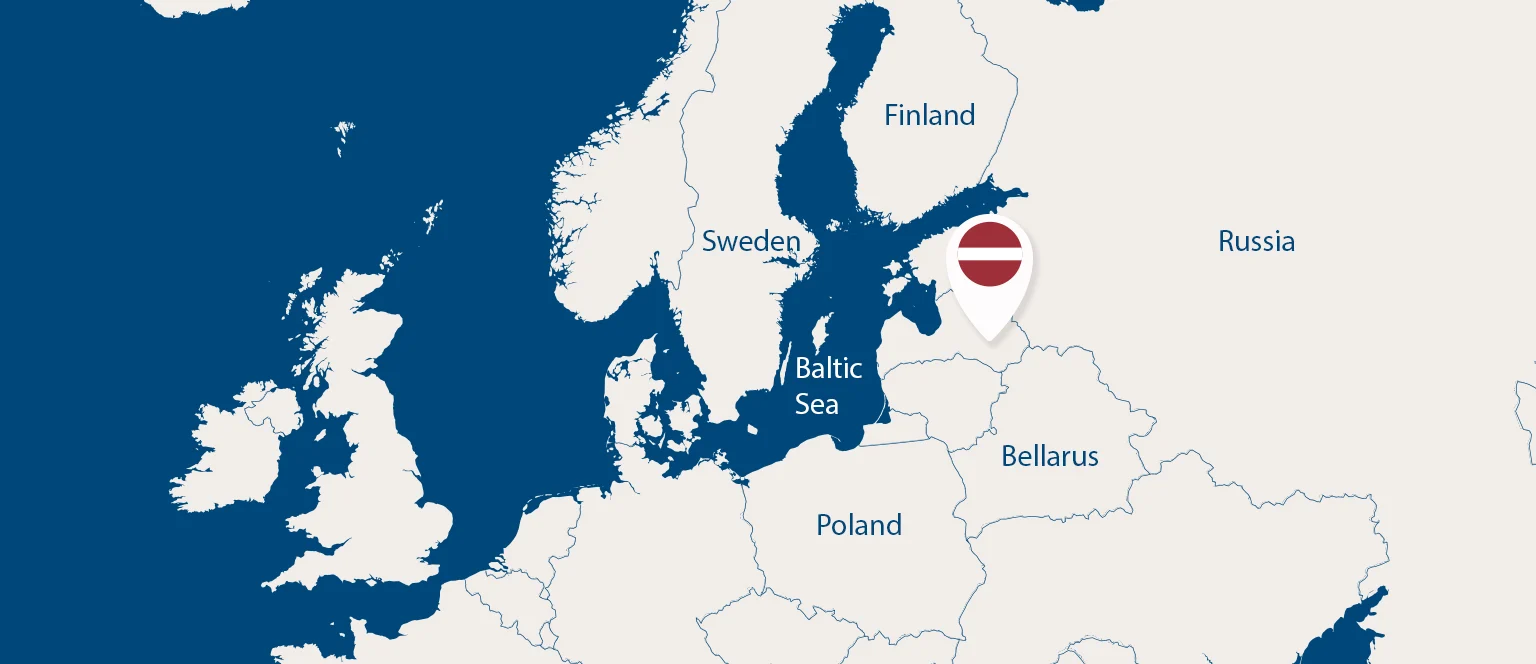- +97144308028
- Emaar Business Park, Dubai
- Monday - Friday | 9:00 - 18:00
- +97144308028
- Emaar Business Park, Dubai
- Monday - Friday | 9:00 - 18:00
Latvia
About Latvia
Latvia, a Baltic nation in Northern Europe, is a member of the European Union, the Eurozone, and the Schengen Area. Its capital, Riga, is the largest city in the Baltics and a UNESCO World Heritage Site, known for its Art Nouveau architecture and vibrant cultural life.
Latvia has a stable parliamentary democracy and a growing economy supported by services, manufacturing, and logistics. Since joining the Eurozone in 2014, it has attracted investment through structural reforms and EU funding, strengthening its position as a competitive European economy.
Latvia’s history reflects a blend of German, Swedish, and Russian influences. After regaining independence from the Soviet Union in 1991, it has developed into a modern European state while preserving its cultural identity and historical landmarks.
The country offers a Residency by Investment Program that invites foreign nationals to contribute to the country’s economic development. Through real estate, business, or financial investments, applicants can obtain temporary residency with a path to permanent residence and eventual citizenship. This initiative supports national growth while offering investors access to the EU and Schengen Area.

Learn More About Latvia
Latvia’s Residency by Investment Program was officially established under the Immigration Law of the Republic of Latvia, amended in 2010 to include provisions for third-country nationals seeking residence through economic contribution. The program outlines eligibility and investment criteria in Section 23 of the law, providing a legal framework for obtaining temporary residence through real estate purchase, business investment, or financial deposit.



